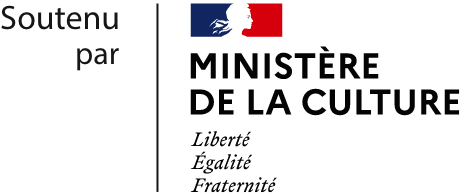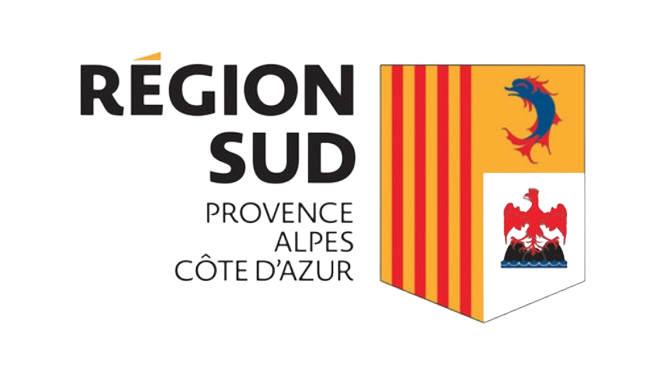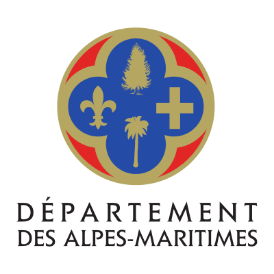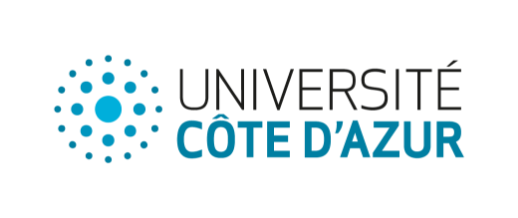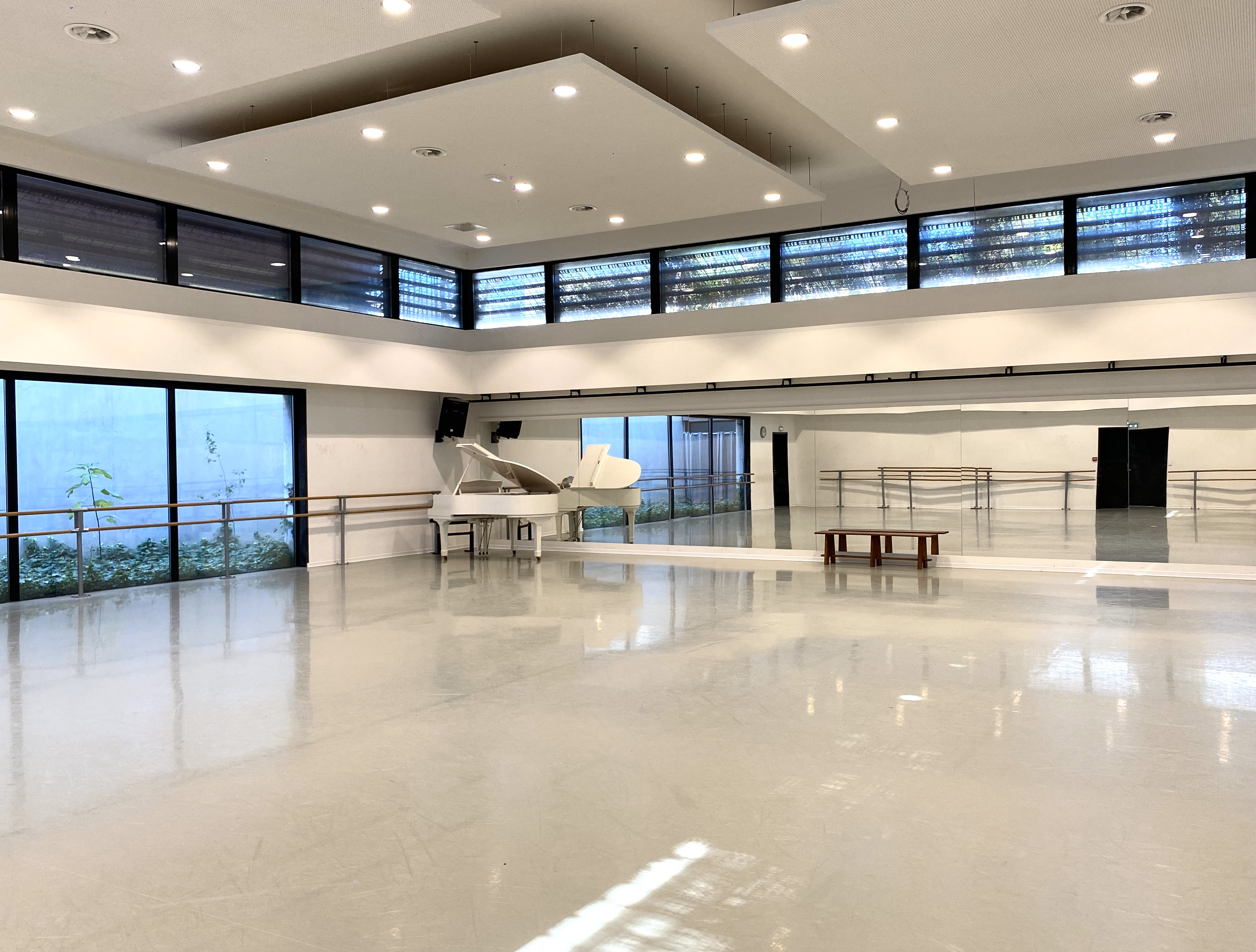
faq
Study at PNSD Rosella Hightower
The academic school year usually commences on the first week of September.
Vacation periods are based on the French National Education system’s calendar (Zone B). However, students have a week of vacation (10 calendar days) for Autumn break (October-November) and Winter break (February).
For the ELEM1 (Year 7) to SECONDARY (Year 11), academic classes are held in the morning from 8:00AM to 1:00PM, while artistic classes take place over a period ranging from 2:00PM to 8:00PM.
Students attend classes from Monday to Friday. Some artistic classes are also scheduled on Saturdays – the dates being outlined in the yearly Corpus leaflet.
For students in the DNSP preparatory year (Year 12) and DNSP1 (Year 13), artistic classes take place in the morning from 9:00AM to 12:00PM, while regular academic classes are scheduled between 1:00PM and 6:30PM. Students are expected to attend classes every Saturday from 9:00AM to 12:00PM. It should be noted that scheduling may be subject to change according to artistic requirements.
For DNSP2 and DNSP3, classes take place from Monday to Saturday based on scheduling provided every Friday.
In the event of free periods in their daily school timetables, study periods are implemented. Students are expected to learn to work autonomously and engage in self-directed learning activities, with the option of seeking assistance from school personnel for homework preparation.
There are no typical class sizes, as intakes depend on our school specificity and selection criteria.
Although the boarding house is co-educational, girls and boys are accommodated in separate wings of the building.
Whenever possible, students of the same age are accommodated together. Two students wishing to share the same bedroom may submit their request on the day of enrollment.
Minor students in the Dance Study cycle are given priority for accommodation on campus.
SURVEILLANCE
Children are supervised at all times while at the boarding house. Checks are conducted throughout the day, including upon waking, after dance classes, after dinner and at bedtime.When leaving the building, students must leave the key at the reception desk and specify their whereabouts.
WEEKENDS
Teenage students aged 14 and above typically enjoy parental authorisation to go out during specific times. They must inform the house supervisors of their departure and return times. It is highly recommended that students leave school premises in pairs.
Students under 14 are not allowed to leave campus without supervision. Outings are scheduled upon student’s request on Saturday afternoons (cinema, swimming-pool, errands). The cost of outings (transport, tickets) is borne by families. Sundays are dedicated to rest and homework preparation.
Students may return home for the weekend as long as their trip does not interfere with their academic or artistic schedules.
TERM EXAMINATIONS – ELEMENTARY CLASSES 1 TO DNSP PREPARATORY YEAR
Classical dance and contemporary dance :
- Assessment by the student’s teacher and Artistic Director
- Feedback and report provided by the student’s teacher and Artistic Director
Assessment criteria for quarterly assessment (all classes) :
- Technical mastery, coordination, performance quality (coefficient 3)
- Artistic expression and musicality (coefficient 3)
- Concentration and assimilation (coefficient 1)
Other disciplines
Marks and reports given by the teachers and approved by the Artistic Director.
CLASS COUNCILS
Quarterly meetings between the Artistic Director and the class’s teaching team, as well as the Deputy Studies Director and School Life Supervisor for every class. Each student’s case is examined in detail to determine their progress and support them in reaching their full potential within our curriculum.
QUARTERLY SCHOOL REPORTS
Three digital quarterly reports are issued over the course of the academic year and sent to families. The quarterly report provides a snapshot of the student’s current situation at a given time in their curriculum. It aims to inform both students and families on the student’s level and teachers’ perception of their work, to align them with the curriculum expectations, while providing feedback and advice to support their progress.
Upon receiving their school report, we encourage students to go to the general comment section, which is a reflection of the teachers’ assessment of the student’s level and work. A positive comment means that the student is underway to meet expectations. On the other hand, a cautious comment should encourage the student to put in consistent effort to achieve better results next term.
Other indicators include the marks received in each discipline. Competency and progress are expected in each discipline, and results in each field are important.
Tests are marked on 20.
The scoring grid breaks down as follows :
Excellent from 18 to 20
Very good from 16 to 18
Good 14 to below 16
Quite good from 12 to 14
Average from 10 to below 12
Unsatisfactory from 8 to 10
Weak from 6 to 8
Poor : below 6
In artistic subjects, particularly within a training process, excellence is hardly ever achieved. Most students receive quarterly marks in dance ranging from 12 to 14.5 out of 20. Marks close to 12/20 suggest modest achievement which the student needs to address for consistent progress throughout classes.
FINAL EXAMINATIONS
Dance disciplines are assessed at the end of every academic year before a jury consisting of 3 to 4 members, including the Artistic Director, members of PNSD faculty and/or external contributors.
Students present themselves before the jury, first collectively with their class, and then through both an individual and pair performance, consisting of variations which they prepared with their teacher.
For DNSP students in Preparatory class, a classical dance class is presented before the jury.
Each variation leads to marking, for both classical and contemporary disciplines. The annual average determining admission in the next level breaks down as follows :
- Continuous assessment average : coefficient 2
- Final examination average : coefficient 3
To move up to the next level (beginning in Elementary 1 through DNSP preparatory class), students must achieve an annual average of 12+/20.
CLASS ADVANCEMENT
The entire training process is assessed. This assessment includes quarterly or bi-annual tests (according to class level) marked by our faculty members, as well as final examinations held before a jury comprising recognised figures in the field of dance who are external to the school. An annual reference average is determined based on each exam.
This comprehensive assessment determines a student should :
advance to the next class
repeat a year
be permanently removed
benefit from specific adaptations
Our students receive education in all subjects from year 7 through year 13, except in Physical Education, Art and Music.
Academic teachers are regularly informed of any change in artistic scheduling throughout the academic year and are attentive to students’ needs and state.
Academic timetables are established under the supervision of CIV at the beginning of each year during dedicated time periods. They are liable to change or adaptation regarding artistic needs.
Homework assistance and maths tutoring periods are provided to monitor students’ progress and support them with their schoolwork.
In middle school, only Spanish as a Second Language is delivered by a teacher. However, if a student wishes to study a different language, a request must be submitted directly to the Principal, and upon approval, may be pursued through remote learning (CNED).
In high school, both Spanish and Italian are delivered in person.
Academic classes are delivered in French. To be able to consistently communicate with teachers, sit tests and exams, speaking and writing French is mandatory. Students being enrolled in a French curriculum, the DELF A2 certificate is requested to validate international students’ enrollment with our school partner.
At the beginning of the academic school year, non-French-speaking students must sit a placement test for assessment of their level and needs. Students failing to comply with an A2 level of proficiency will have to attend French as a Second Language classes organised by our school.
For advanced levels, any student unable to speak French should consider studying remotely.
Our school may offer artistic and/or accommodation scholarships to students in the higher cycle (DNSP), on the grounds of artistic criteria (student’s potential for becoming a professional dancer), AND social criteria leading to material difficulties which may prevent students from initiating or pursuing higher dance education studies.
Merit scholarships are not automatic. Their grant is dependent on the budget the school allocates to scholarships every year.
L’attribution des bourses aux élèves méritants n’est pas automatique. Leur attribution est dépendante du budget annuel de l’école accordé aux bourses.
The preparation of competitions is not part of our educational project. We believe that, in order to build themselves solidly and sustainably, students need to work according to an adapted educational progression, which competitions do not allow since they require focusing on the repetition of variations involving technical difficulties to the detriment of a holistic and harmonious development on a technical level. The expectations of competitions do not always respect the physical capacities specific to each age. In spite of a stimulating emulation which competitions may foster, we rigorously select the competitions which we aim our students to take part in – in terms of level, as we seek competitions with high standards likely to facilitate our students’ progress, but also by considering the opportune moment for a student to undertake a challenge that serves their artistic and technical growth. Specifically, PNSD is a partner of the Prix de Lausanne and Youth America Grand Prix. The Prix de Lausanne is a particularly prestigious competition open to dancers from the age of 15.
As stipulated in the school’s internal regulations, any student wishing to engage in a dance competition should submit a request to the school administration.
